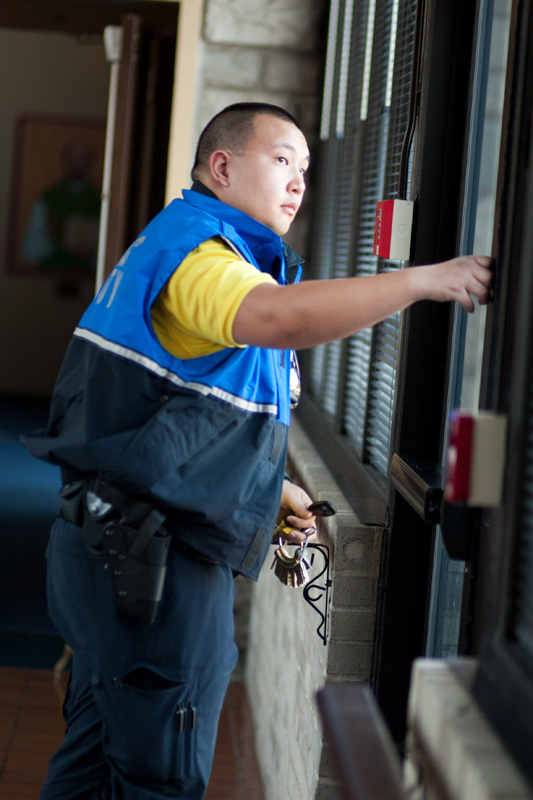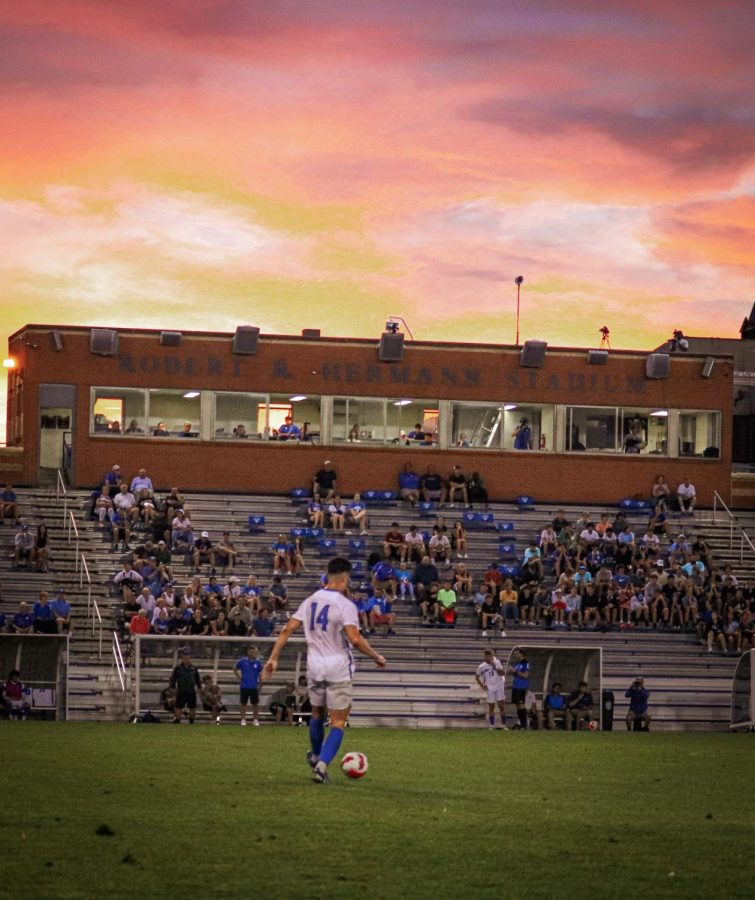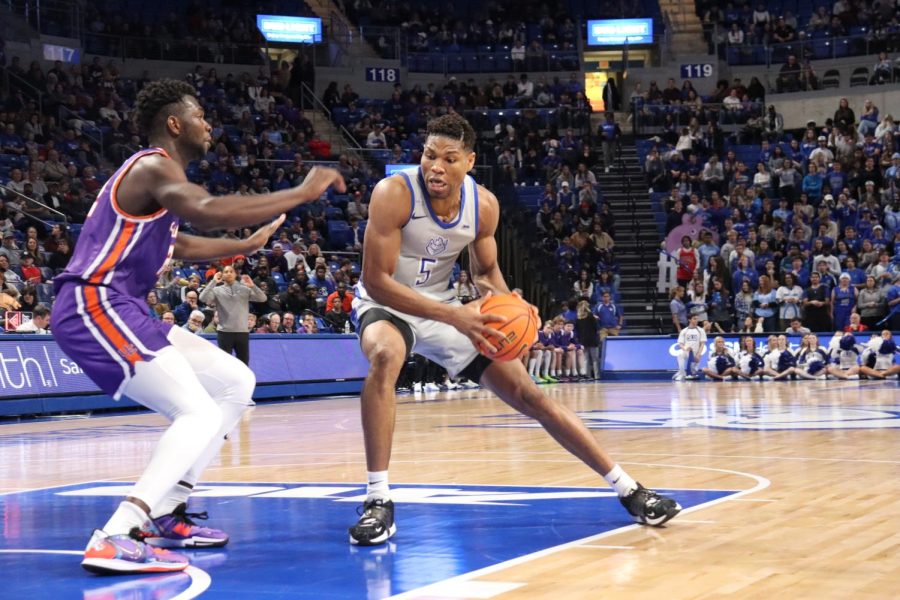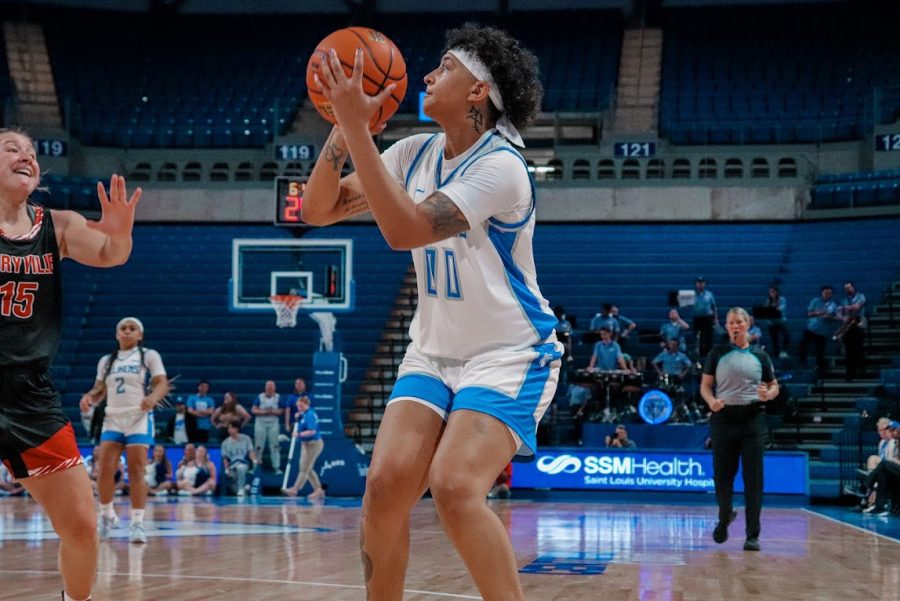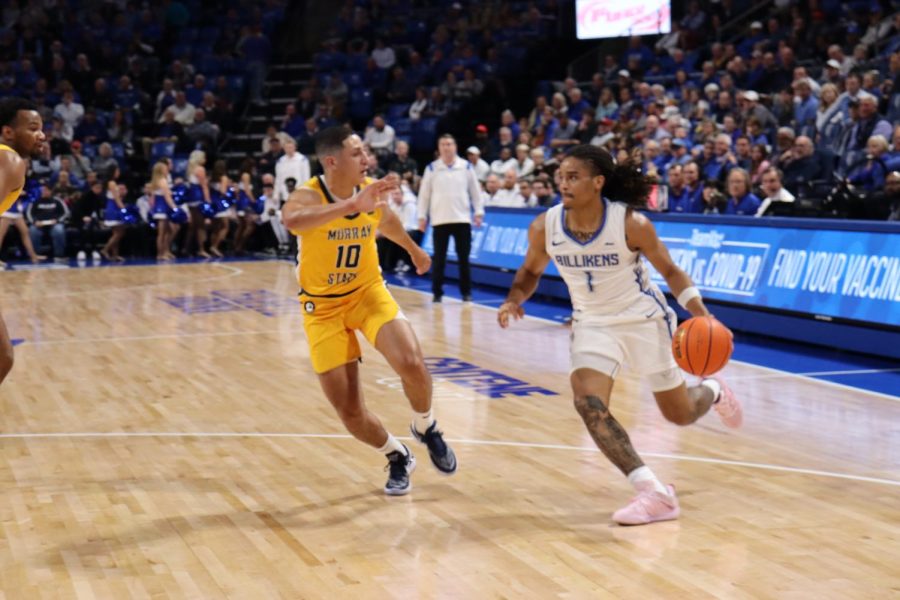“He saved me, he saved me.” Department of Public Safety and Security Services Officer Henry Owens often hears this on campus as a thankful student greets him for his service.
“This one student always says hi to me and tells his friends that I saved him for breaking up a fight he was in, and since then he always greets me when he sees me,” Owens said.
Owens received the Saint Louis University Star, an award that recognizes employees who go above and beyond the call of duty, for this and his response to other incidents during his patrols. Since Sept. 7, DPSSS, under the new management of Roland Corvington, assistant vice president and director of the department, has worked toward making this student-officer relationship an enduring call of duty.
“That customer service is number one, and although we have an enforcement responsibility, the number one responsibility is our relationship with the students, faculty and staff of this University because we are a part of the fabric of the University,” Corvington said.
In his first two weeks, Corvington, formerly of the FBI, has observed and reassessed the department, laying out a strategic shift document that illustrates from what the department is progressing and what he envisions it can be.
The document lists 13 modifications, which encompass the following: progressing from a reactive to a proactive role of data-driven security and law enforcement risk management, from an undervalued perception of security to a vital part of SLU’s culture and from a licensed private security force to a professional, accredited police service.
Vice President, General Counsel and Secretary Bill Kauffman, who oversees Corvington and the department, has noticed these additional steps and he believes Corvington is an “exciting individual” for the University.
“Roland is seeking out administrators to help identify the issues and to partner and create a comprehensive approach to safety and security on this campus,” Kauffman said. “I think we are already seeing additional steps including visibility, attitude and partnership to allow us to transition to a safer environment.”
These strategic shifts were presented to University President Lawrence Biondi, S.J. and his vice presidents a few weeks ago. According to Corvington, Biondi “blessed this as our direction.”
“I believe that I have built a framework from which to evolve,” Corvington said.
On Oct. 6 at 11 p.m., Corvington personally addressed his officers in his second roll call. He communicated this approach and discussed where he wants to take the department. Corvington highlighted collaboration and visibility on campus as two key components of increasing customer service.
Bike Patrol Officer Dan Greeneway and other officers have been very receptive to these goals laid out for the department.
“Corvington is doing a great job,” Greeneway said. “We should have more interaction with students, faculty and staff; I think it is good that he wants to push for that.”
Part of this push for increased interaction is the recent selection of a new public affairs officer to help further engage the department with the students, faculty and staff. Five-year veteran with the department and former St. Louis County Police Officer Pat Signorino will perform these public affairs duties along with his duties as a field supervisor. Part of Signorino’s new duties is to open up more interaction with the student body by communicating through Student Government Association and the student media outlets.
“I am looking forward to my new duties. I think a lot of the officers are excited about the changes and about the future,” Signorino said. “I think education as far as safety goes is really important and I don’t think students realize that they are an important part in helping us keep this campus safe.”
This semester, SGA has started a new Safety and Security Concerns Committee as a way to address the student concerns regarding DPSSS. Committee Chair Caroline Rutledge is working to establish an increase in communication and collaboration with the department after her initial meeting with Corvington last month.
“Our goals are to set up that constant collaboration with public safety to ensure that the needs of the students are being communicated,” Rutledge said. “We are trying to change the student’s perception of public safety to a more positive perception.”
Students’ negative perception of DPSSS is apparent to the officers as they patrol campus. Three students looked down and passed by as Bike Patrol Officer Jonathan Young says “hello” to them as he patrols “beat two,” from Grand Blvd. to Compton Ave., during the day in the Grand Forest apartments.
“This uniform can have a bad perception. Since DPSSS is here, they think that someone screwed up and we are containing them for it instead of thinking that we are here to serve and protect,” Young said.
Corvington believes the negative perception of his officers may be based on past occurrences and word of mouth rather than the personal interaction that he is working toward.
Owens also encounters this disconnect from students while he patrols “beat three,” from the clock tower to Grand Blvd., on a Friday night near the Village Apartments. He combats this by pulling out simple jokes to better interact with students walking around.
“These are the rules and that doesn’t mean you can hate us because of it,” Owens said. “You just have to joke with the students and interact with them. Sweet Caroline is my favorite song and when they start singing it, I will sing along with them as long as they are getting home safely.”
The department is also pushing to better utilize the technology and resources officers have while on patrol while also increasing visibility on campus. During the “A shift” from 11 p.m. to 7 a.m. on an ordinary Friday or Saturday night, 14-15 officers patrol the Frost Campus, Medical Campus and all other SLU property. A dispatcher in the DuBourg Hall office coordinates these patrols to try and maximize the officers’ coverage of the campus.
“We have to have more directed patrols to areas that are more of a concern to our customers,” Corvington said. “We are trying to look at technology and ways of applying technology to enhance our ability to use our resources better.”
In an attempt to increase the coverage by patrol officers, the department tested two Trikes last week as an initiative to increase awareness and give officers more tools for their patrols. These three-wheeled vehicles, which were demo models on loan from a local car dealership, are completely battery-powered and feature a PA system and patrol lights. The Trikes can go up to 29 mph and cost approximately $9,000.
“[A Trike] lets you patrol more of the campus at a quicker pace,” Field Training Officer Joshua Hyde said. “It is a very good tool and it has many applications for us and we have had a lot of positive feedback from students, it is something new and a little different.”
The officers were asked to test drive the vehicles and report their evaluations, as Corvington will put in a capital request for funding to purchase three for the department.
Better equipment and more efficient patrols represent just one of the many changes enacted since Corvington took over the department. These improvements, coupled with a customer-service oriented approach, reflect a true partnership between the University community and DPSSS.
“It is a collaboration. It is not just trying to solve problems, it is us trying to solve problems and contribute to others to be sure that there are efforts in place to protect the students, faculty and staff on this campus,” Corvington said.




